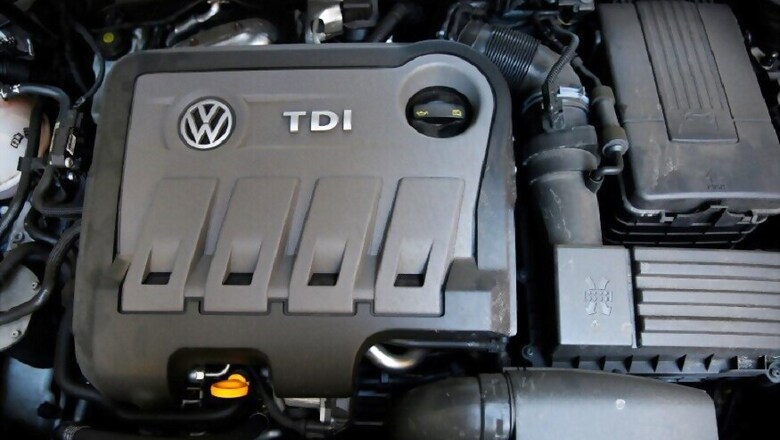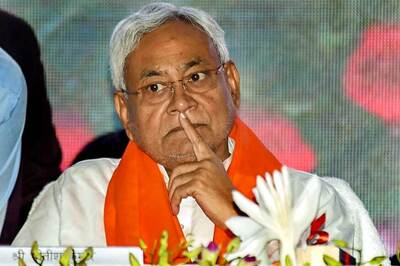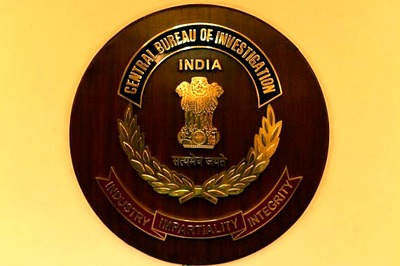
views
Volkswagen group said it would object to certain parts of recommendations by a panel formed by the National Green Tribunal (NGT), which has proposed a Rs 171.34-crore fine on the German auto major as "health damages" in an emission scandal. The company insisted that its vehicles were compliant with Indian emission norms and claimed that "the committee appointed by the NGT has accepted that Volkswagen Group India has not violated the permissible limits under BS-IV norms".
A four-member committee formed by the NGT has recommended a Rs 171.34-crore fine on Volkswagen for causing air pollution in Delhi due to excess nitrogen oxide (NOx) emissions. Nitrogen oxide is a smog-forming pollutant linked to heart and lung disease.
The expert committee in its report has estimated that Volkswagen cars released around 48.678 tonne of NOx in 2016 in the National Capital. Reacting to the development, Volkswagen Group India spokesperson said vehicles from the group are compliant with emissions norms prescribed in India. The committee, appointed by the NGT, has accepted that Volkswagen Group India has not violated the permissible limits under BSIV norms, the spokesperson added.
"There are certain recommendations in the report which Volkswagen Group India seeks to object; the issue is presently pending before the Supreme Court and the National Green Tribunal," the Volkswagen Group India spokesperson said.
The four-member panel -- comprising Automotive Research Association of India Director Rashmi Urdhwareshe, CSIR-NEERI's chief scientist Nitin Labhsetwar, Department of Heavy Industries Director Ramakant Singh, and Central Pollution Control Board member secretary Prashant Gargava -- determined the penalty of Rs 171.34 crore on the basis of 3.27 lakh Volkswagen cars in India that had deceit software installed.
The panel was formed by the NGT on November 16 last year to give its expert opinion on the subject whether the manufacturer has exceeded the prescribed environmental norms and fair estimate of the damage caused to the environment. The committee has told the NGT that automobiles are a major source of nitrogen oxide emissions and nitrogen dioxide is the most prevalent source form of nitrogen oxide.
The panel calculated the morbidity by using the estimates of the cost of treatment and related expenses under the heading of cost of illness and the disability-adjusted life years (DALY) from the WHO database. The matter is scheduled to come up for hearing on January 17 before a bench headed by NGT Chairperson Justice Adarsh Kumar Goel.
The green tribunal had earlier said the use of 'cheat device' by Volkswagen in diesel cars in India leads to inference of environmental damage and asked the German car maker to deposit an interim amount of Rs 100 crore with the Central Pollution Control Board.
The tribunal was hearing pleas filed by a school teacher, Saloni Ailawadi, and a few others seeking ban on sale of Volkswagen vehicles for alleged violation of emission norms. A 'cheat' or 'defeat device' is a software which VW was found using in its diesel engines to manipulate emission tests by changing performance of its cars globally.
Volkswagen India had in December 2015 announced the recall of 3,23,700 lakh vehicles in India to fix the emission software after ARAI conducted tests on some models and found that their on-road emissions were 1.1 times to 2.6 times higher than the applicable BS-IV norms. The automobile giant had admitted to the use of 'defeat device' in 11 million diesel engine cars sold in the US, Europe and other global markets to manipulate emission test results.
After the tests by ARAI, Volkswagen India had undertaken to rejig the software by recalling around 3.23 lakh vehicles fitted with EA 189 diesel engines which were in alleged violation of emission norms. The company, however, had said that the recall in India was purely voluntary in nature as it did not face any charges regarding violating emission norms in India unlike in the US.




















Comments
0 comment